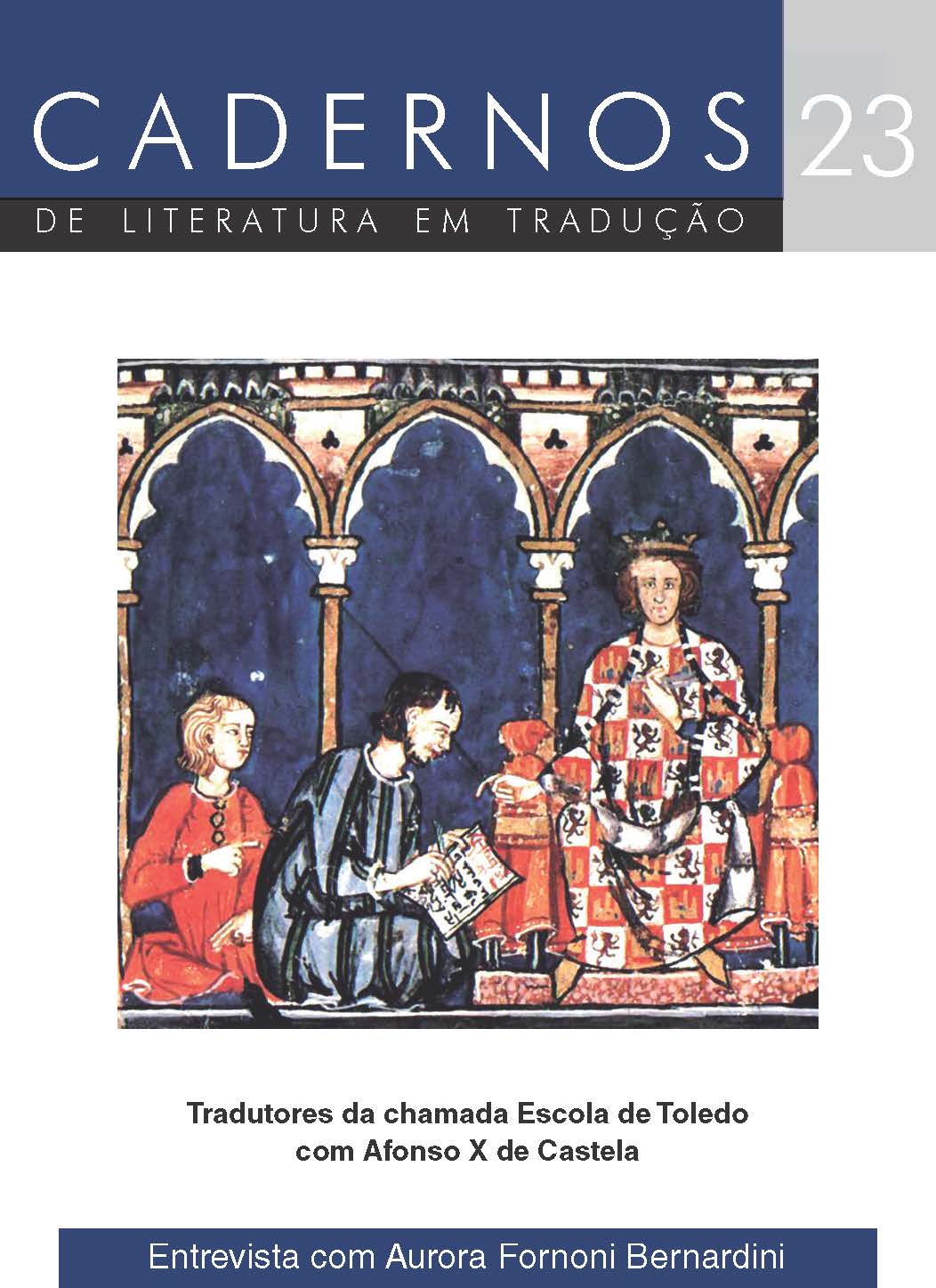“Edgar Allan Poe”: uma tradução comentada da crônica de Rubén Darío
DOI:
https://doi.org/10.11606/issn.2359-5388.i23p162-177Keywords:
Edgar Allan Poe, Personal essay, Translation, Ruben DaríoAbstract
In the personal essay “Edgar Allan Poe” (2013), an anxious narrator, haunted by images that are both gloomy and mesmerising – and that multiply around him as he strolls around Manhattan – is developed by Rubén Darío. In the text, the Nicaraguan author demonstrates why it is important not only to talk from the perspective of a Hispanic America, but also from the standpoint of a marginalised America – which observes, critically, the centre. In an electrifying rhythm, marked by the absence of pauses, as well as through the usage of a hybrid language, filled in with hypertextual references, the text chokes the reader – so suffocating as, for Darío, Manhattan seemed to be. Therefore, and as to maintain the confusion in style and images present, probably not by chance, in the personal essay, my translation proposal of “Edgar Allan Poe” is guided by two premises: 1) The maintenance of Darío’s punctuation, taking into account the accelerated flux of words that gives readers few opportunities to “breathe” between the narrator’s different observations; 2) Reiterate the hybrid and hypertextual character of the personal essay, reproducing the diverse references made by Darío to historical and fictional characters, spaces, as well as his usage of words in English – choices which, through verisimilitude, invite readers to embark on that very same trip through that North American metropolis.
Downloads
References
ANTUNES, Antonio Lobo. O meu nome é legião. São Paulo: Alfaguara, 2009.
BÍBLIA. A. T. O evangelho segundo Marcos. In: BÍBLIA. Português. Bíblia sagrada: Antigo e Novo Testamento. Trad. João Ferreira de Almeida. Rio de Janeiro: Sociedade Bíblica do Brasil, 1966. pp. 678-686.
CANDIDO, Antonio. “A Vida ao Rés-do-Chão”. In: CANDIDO, Antonio et al. A Crônica: O gênero, sua fixação e suas transformações no Brasil. Campinas: Editora Unicamp, 1992. pp. 13-22.
DARÍO, Ruben. Los raros. Buenos Aires: Letras libres, 1896.
DARÍO, Ruben. “Edgar Allan Poe.” In: Viajes de un Cosmopolita Extremo. Buenos Aires: Fondo de Cultura Económica, 2013. pp. 129-133.
DE LISLE, Leconte. Poèmes barbares. Lyon: Librairie Alphonse Lemerre, 1862.
JOUVE, Vincent. Por que estudar literatura? Trad. Marcos Bagno e Marcos Marciolino. São Paulo: Parábola editorial, 2012.
LAZARO IGOA, Rosario; COSTA, Walter Carlos. “Edição e tradução nas crônicas brasileiras dos séculos XIX e XX: Entrevista com John Gledson.” In: Cadernos de Tradução, v. 36, n. 2 (2016): pp. 311-329.
MONTALDO, Graciela. “Guía Rubén Darío.” In: DARÍO, Rubén. Viajes de un Cosmopolita Extremo. Buenos Aires: Fondo de Cultura Económica, 2013. pp. 11-52.
PAIVA, Daniel. “Fronteira e contacto em O meu nome é Legião.” In: Estudos geográficos de Lisboa, v. 42, n. 1 (2013): pp. 183-201.
PIGLIA, Ricardo. El Último Lector. Buenos Aires: Debolsillo, 2014.
SHAKESPEARE, William. The Tempest. London: Penguin popular classics, 1992.
VILLORO, Juan. “La crónica, ornitorrinco de la prosa”. La Nación, Buenos Aires, 22 de Janeiro de 2006, Suplemento Cultura.



